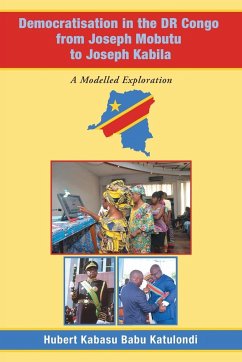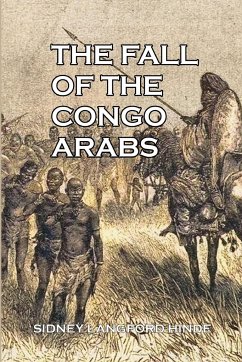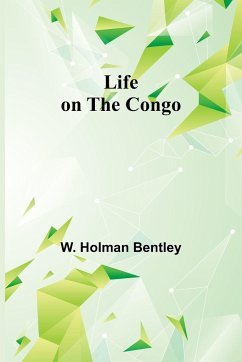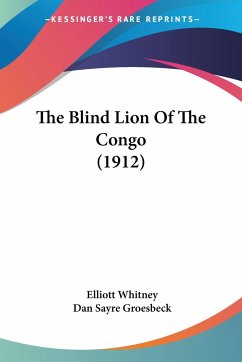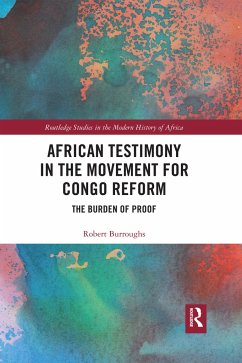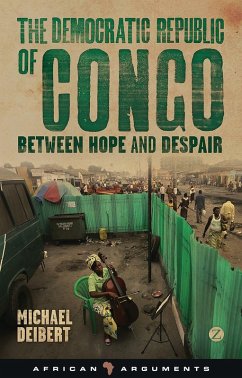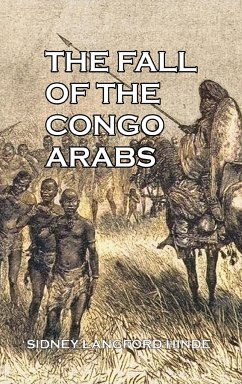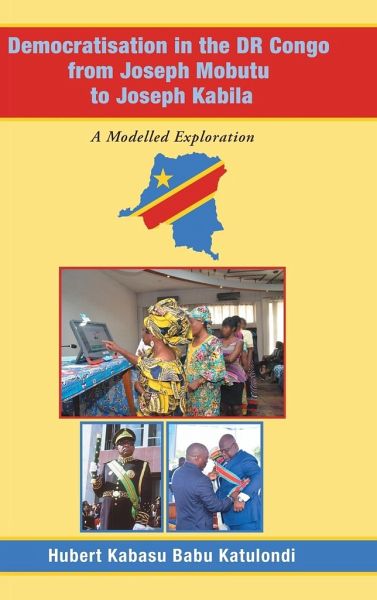
Democratisation in the Dr Congo from Joseph Mobutu to Joseph Kabila
A Modelled Exploration
Versandkostenfrei!
Versandfertig in 1-2 Wochen
31,99 €
inkl. MwSt.
Weitere Ausgaben:

PAYBACK Punkte
16 °P sammeln!
The Democratic Republic of Congo (DRC) has experienced one of the most complex, meandering, and uncertain democratisation processes in Africa. In 2016 the third cycle of elections was not organised. The Presidential Majority (M.P) was accused of concocting an amendment of the constitution aimed at granting a third term to the incumbent President Joseph Kabila. Furthermore, the introduction of a Voting Machine by the electoral commission fuelled violent protests and a political impasse. The DRC tittered on the brink of collapse into another civil war in 2016. Yet, against all odds, the Congoles...
The Democratic Republic of Congo (DRC) has experienced one of the most complex, meandering, and uncertain democratisation processes in Africa. In 2016 the third cycle of elections was not organised. The Presidential Majority (M.P) was accused of concocting an amendment of the constitution aimed at granting a third term to the incumbent President Joseph Kabila. Furthermore, the introduction of a Voting Machine by the electoral commission fuelled violent protests and a political impasse. The DRC tittered on the brink of collapse into another civil war in 2016. Yet, against all odds, the Congolese electoral commission organised peaceful elections in December 2018. Stunningly, the presidential election was won by the opposition. A peaceful transfer of power at the helm of the state occurred for the first time in the country after 58 years of independence. The DRC is now regarded as a model of political alternation in power in Central Africa. The essay stems from the observation that predominant theorisations of Congolese politics fail to grasp the fecundity of the Congolese democratisation. Most scholars and analysts tend to focus on the deficits and flaws inherent in Congolese politics. Hence, they are often oblivious to foundational strides accomplished in this process as it unfolded in the DRC. This essay undertakes a modelled exploration of the democratisation process that unfolded in the DRC from the era of President Joseph Mobutu (1990-1997) to the dispensation of President Joseph Kabila (2001-2018). The effort utilises a paradigmatic framework to unravel the intricacies of a phenomenon occurring in a country which, at first glance, is often assumed to escape any ideal type. To this effect, the essay utilises Dr. Samuel Huntington's Model of the Third Wave of Democratisation. It elucidates the causes, patterns, problems, and prospects of furthering this process in the DRC. The book proposes a dialectical approach propounding the possibility of the consolidation of democratisation in the DRC.




